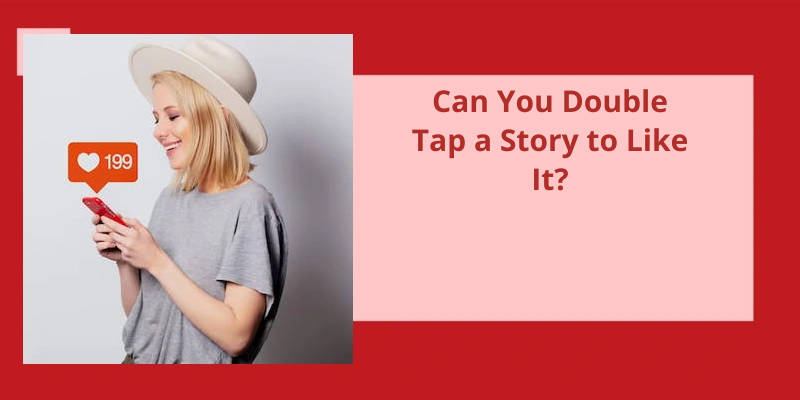When someone asks you "Do you know me?", it's a question that can catch you off guard. Your response should be both witty and friendly, giving a hint of mystery while also showing that you’re open to the possibility of a connection. One option could be to playfully respond with "Do you want my introduction?", making the conversation more lighthearted and engaging. Another choice could be simply stating "I guess.. It's a no!" to show that you might recognize them, but you're not entirely sure. Alternatively, you can reply with "I think we met somewhere before," leaving them curious and eager to figure out where exactly they know you from. Another response could be "I don't know you, but you might see me somewhere," showing that while you don't have a personal connection yet, there’s a chance for one in the future. Igniting their curiosity, you could reply with "Keep guessing, I'll come back soon," giving them hope that they might unlock the mystery soon enough. An intriguing response could be "I'm Pedro. You don't know me, but I know you," creating an air of intrigue while maintaining a friendly tone. And if you prefer a straightforward answer, just say "No, but I visit this place quite often," offering a simple explanation for not recognizing them. Remember, the most important thing is to keep the conversation light-hearted and open to further interaction.
Do You Know Me or Do I Know You?
When faced with the question, “Do you know me?” or “Do I know you?” it’s essential to consider the implications and context behind these inquiries. While both questions aim to ascertain the level of familiarity between two individuals, “Do I know you?” conveys a more polite and considerate tone. This phrasing tactfully shifts any potential embarrassment from the respondent to the asker. Unlike “Do you know me?” which can suggest an expectation for recognition, “Do I know you?” transfers the burden of memory to the person posing the query.
How to Respond to I Don T Know You?
It shows that you’re willing to establish a connection and make a positive impression. Another possible response could be, “Thats okay, we havent met before. I heard great things about you though!”. This response reflects a polite and light-hearted approach, demonstrating that you’re interested in getting to know the person and leaving a positive impression.
Alternatively, you could respond with, “No worries, Im [your name]. I just thought we might have crossed paths before.”. This response acknowledges the lack of familiarity while still expressing your curiosity about the other person. It opens the door for further conversation and gives the other person an opportunity to share their own experiences or knowledge.
If you want to take a more direct approach, you could say, “Thats alright. I was hoping to get to know you better. Are you open to chatting for a bit?”. This response demonstrates your interest in establishing a connection and gives the other person a chance to reconsider their initial response. It shows that you’re willing to put in the effort to develop a potential relationship.
Lastly, you could respond with, “I understand. Is there something specific you’d like to know about me?”. This reply allows the other person to express their concerns or curiosity, giving both parties an opportunity to engage in a genuine conversation. It shows a willingness to address their doubts or reservations while also encouraging them to share more about themselves. Overall, the key is to remain friendly, open, and respectful in your response, seeking to create a positive and connecting interaction.
Now that we know that “Do I know you?” is a correct phrase in English to inquire about familiarity with someone, let’s explore it’s usage and cultural implications in different contexts.
Is It Correct to Say Do I Know You?
When someone asks “Do I know you?”, they’re seeking confirmation or clarification about their familiarity with the person they’re talking to. It’s a straightforward and direct way of inquiring if there’s a preexisting relationship or if they’ve encountered each other before. This question is commonly used by native English speakers when they encounter someone who looks familiar but they can’t recall where they’ve met or if they’ve met at all.
It allows for the possibility of shared experiences, common acquaintances, or past interactions. By posing this question, individuals hope to establish a foundation or context for further conversation. This phrase is often used in social encounters or chance meetings, where people want to establish a connection or explore potential shared experiences.
However, it’s essential to consider the context and tone when responding to this question. Depending on the delivery, it can be perceived as skeptical or confrontational. Therefore, answering with a polite and friendly response is crucial. You could reply with a simple introduction or a question about the other persons background to initiate a friendly conversation. It’s a great opportunity to establish rapport and potentially build new connections.
When someone asks, “How do you do?” it’s important to understand that it isn’t typically meant as a genuine inquiry about your well-being. Rather, it’s more commonly used as a form of greeting. Consequently, the appropriate response is usually “Fine, thank you,” or “How do you do?” or a similar variation.
How Do You Respond When Someone Ask How Do You Do?
When someone asks “How do you do?” it’s important to remember that this isn’t typically meant as a sincere inquiry into your current state of being. Instead, it’s considered more of a traditional greeting or salutation. In response, it’s customary to reply with a similar polite phrase such as “Fine, thank you,” or “How do you do?”. This exchange is seen as a polite way to acknowledge each others presence and show basic manners.
When responding to the question, it’s important to maintain a polite demeanor and keep the conversation light. It isn’t necessary to elaborate on your personal life or share any deep details. Instead, focus on maintaining a friendly tone and showing interest in the other person. This can help to establish a positive and amicable atmosphere for further conversation.
It’s intended to foster politeness and establish rapport between individuals. By responding with a gracious and courteous answer, you can effectively acknowledge the greeting and set a pleasant tone for the interaction.
Etiquette and Cultural Differences in Greeting Phrases
Greeting phrases can vary greatly across different cultures and social settings. In some cultures, it’s customary to greet someone with a hug or a kiss on the cheek, while in others a handshake or a simple verbal greeting is more appropriate.
When someone asks “Do you know me?”, it’s important to consider the context and the relationship with that person. If you do know them well, a polite response could be “Yes, of course! We’ve met before at [specific event/place]”. If you don’t know them well, you can politely say “I’m sorry, but I don’t think we’ve met before. Could you remind me where we’ve crossed paths?”
It’s always a good idea to be respectful and open-minded when encountering different greeting customs. By showing understanding and adapting to different cultural norms, we can navigate social situations with ease and make positive connections with people from various backgrounds.
Conclusion
In conclusion, when someone asks you, "Do you know me?" it can be a tricky situation to navigate. Instead of providing a straightforward list of replies, it’s important to consider the context and the relationship you’ve with the person asking the question. It’s perfectly acceptable to respond with a polite and neutral answer such as, "Do you want my introduction?" or to playfully challenge their memory by saying, "I guess.. It's No!" Alternatively, you can leave them intrigued by stating, "I think we met somewhere before," leaving room for further conversation. Ultimately, the key is to respect the other person's feelings while maintaining a level of authenticity and curiosity in your response.





